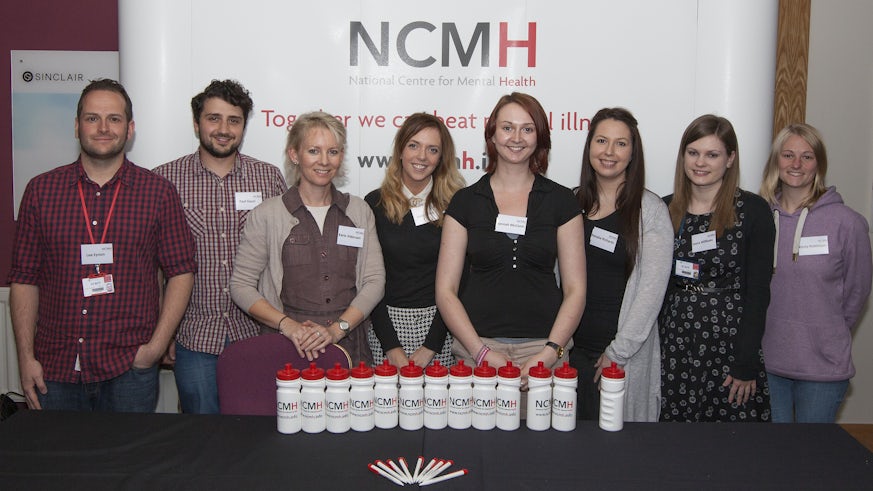It’s a Man Thing
8 May 2015

Cardiff and Swansea researchers join forces with Ospreys for men's health day
Special guests from the Ospreys this week joined researchers from Cardiff and Swansea for a free men's health event at Swansea's Liberty Stadium.
The National Centre for Mental Health (NCMH) held It's a Man Thing event on Tuesday.
The day featured a question and answer session with Ospreys players and health experts, plus a programme of talks from the Centre and guests including the Movember Foundation, State of Mind Rugby, Alcohol Concern Cymru and suicide prevention organisation The Campaign Against Living Miserably (CALM).
It's a Man Thing also included interactive information stalls from physical and mental health organisations including ASH Wales and Time to Change Wales, a retro video gaming station and a free lunch.
NCMH, which is funded by NISCHR, Welsh government, has staff based at Cardiff School of Medicine and Swansea University's Medical School. Team members from both locations came together to host this unique event, which was open to men and women of all ages.
The research
centre works to better understand the causes of mental health problems such as
bipolar disorder, schizophrenia, depression, PTSD and ADHD while also promoting
awareness of mental health issues and combating stigma.
NCMH Director and Cardiff University Professor Ian Jones said: "Innovative
events like this are a great opportunity to raise awareness of important issues
among hard to reach groups. This is absolutely key in engaging the public with
the idea of looking after their own health, as well as with research projects
like ours that aim to improve the health of people in Wales in the future."
NCMH Swansea lead and Head of Swansea University's Medical School, Professor Keith Lloyd said: "With this event we want to help promote better health among men both physically and mentally, and to do it in a fun, enjoyable way."
"Research has consistently shown that mental and physical health go hand in hand, and also that men, and in particular younger men, can be reluctant to seek help when they need it."
"We hope that by bringing some of the potential issues that men can face out in the open, we can encourage them to acknowledge when they need help, and realise that there's no shame in asking for it."